
Asuncion: The Heart of Paraguay's Cultural Heritage
Asuncion, the capital of Paraguay, is a city that seamlessly blends history, culture, and modernity. Located on the eastern bank of the Paraguay River, Asuncion is one of the oldest cities in South America, founded in 1537. This vibrant city is known for its rich colonial architecture, colorful markets, and friendly locals, making it a perfect destination for those seeking an authentic Paraguayan experience. One of the must-visit places in Asuncion is the historic downtown area, where you can explore landmarks such as the National Pantheon of the Heroes and the Palacio de los López, the presidential palace. For art lovers, the Museo del Barro offers an impressive collection of indigenous and contemporary art, providing insights into Paraguay's diverse cultural landscape. No visit to Asuncion is complete without a stroll through its bustling markets. The Mercado 4 is a sensory delight, where you can find everything from fresh produce to handmade crafts. The city's culinary scene is also worth exploring, with local dishes like sopa paraguaya and chipa being must-tries. Asuncion's nightlife is equally lively, with numerous bars and clubs offering a taste of the local music and dance culture. For nature enthusiasts, the Ñu Guasu Park and the Botanical Garden and Zoo of Asuncion offer a peaceful retreat from the city's hustle and bustle. The riverfront area, known as the Costanera, is another popular spot where you can enjoy a leisurely walk or bike ride while taking in stunning views of the Paraguay River.
Local tips in Asuncion
- Visit the historic downtown area early in the morning to avoid crowds and heat.
- Try local dishes like sopa paraguaya and chipa at the Mercado 4 for an authentic taste of Paraguay.
- Use local transportation like buses and taxis, but agree on the fare beforehand if taking a taxi.
- Stay hydrated and wear sunscreen, especially during the hotter months from November to February.
- Learn a few basic phrases in Spanish, as English is not widely spoken.
Neighbourhoods in Asuncion
Asuncion: The Heart of Paraguay's Cultural Heritage
Asuncion, the capital of Paraguay, is a city that seamlessly blends history, culture, and modernity. Located on the eastern bank of the Paraguay River, Asuncion is one of the oldest cities in South America, founded in 1537. This vibrant city is known for its rich colonial architecture, colorful markets, and friendly locals, making it a perfect destination for those seeking an authentic Paraguayan experience. One of the must-visit places in Asuncion is the historic downtown area, where you can explore landmarks such as the National Pantheon of the Heroes and the Palacio de los López, the presidential palace. For art lovers, the Museo del Barro offers an impressive collection of indigenous and contemporary art, providing insights into Paraguay's diverse cultural landscape. No visit to Asuncion is complete without a stroll through its bustling markets. The Mercado 4 is a sensory delight, where you can find everything from fresh produce to handmade crafts. The city's culinary scene is also worth exploring, with local dishes like sopa paraguaya and chipa being must-tries. Asuncion's nightlife is equally lively, with numerous bars and clubs offering a taste of the local music and dance culture. For nature enthusiasts, the Ñu Guasu Park and the Botanical Garden and Zoo of Asuncion offer a peaceful retreat from the city's hustle and bustle. The riverfront area, known as the Costanera, is another popular spot where you can enjoy a leisurely walk or bike ride while taking in stunning views of the Paraguay River.
When is the best time to go to Asuncion?
Iconic landmarks you can’t miss
Costanera de Asunción
Discover the natural beauty and cultural vibrancy of Costanera de Asunción, a riverside park perfect for leisure, family fun, and local events.
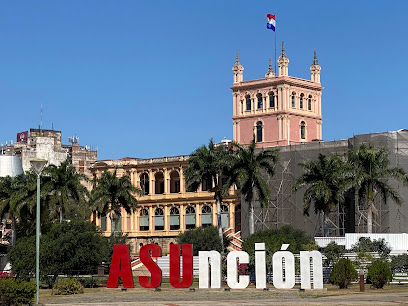
Paseo Carmelitas
Discover the vibrant nightlife of Paseo Carmelitas, a lively hub of bars, restaurants, and entertainment in the heart of Asunción, Paraguay.
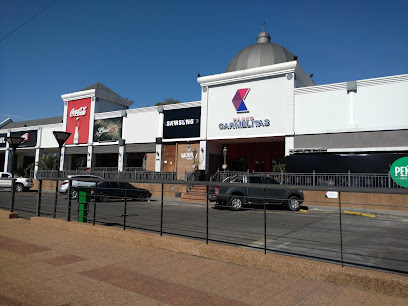
Plaza Uruguaya
Discover the lush greenery and vibrant culture of Plaza Uruguaya, a serene park that captures the essence of Asunción's rich heritage.
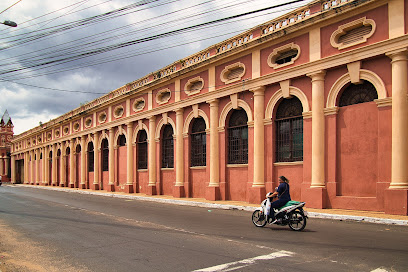
Botanical Garden and Zoo of Asunción
Discover the lush landscapes and diverse wildlife at the Botanical Garden and Zoo of Asunción, a serene escape in the heart of Paraguay's capital.
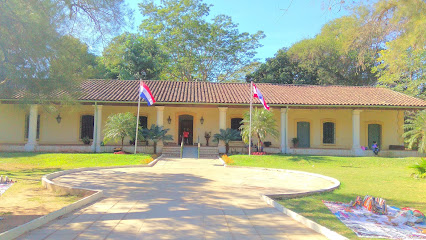
Plaza de la Democracia
Discover the beauty and cultural significance of Plaza de la Democracia, a vibrant park in the heart of Asunción, Paraguay.
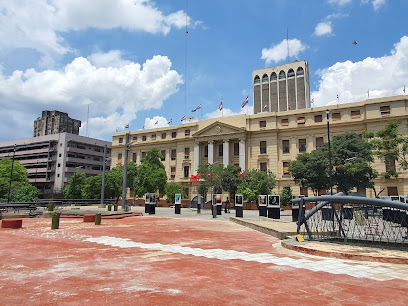
Carlos Antonio Lopez Park
Discover the serene beauty of Carlos Antonio Lopez Park, a sprawling green oasis in the heart of Asunción, perfect for relaxation and outdoor activities.
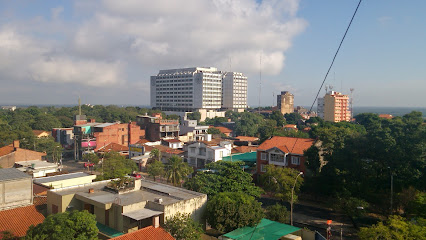
Centro Cultural Manzana de la Rivera
Explore the rich cultural heritage of Paraguay at Centro Cultural Manzana de la Rivera, a vibrant hub for art and history in Asunción.
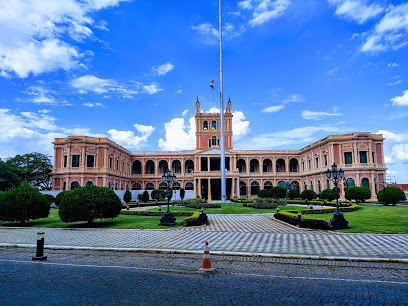
Health Park (IPS)
Explore the lush landscapes and serene ambiance of Health Park in Asunción, a tranquil escape for relaxation and outdoor enjoyment.
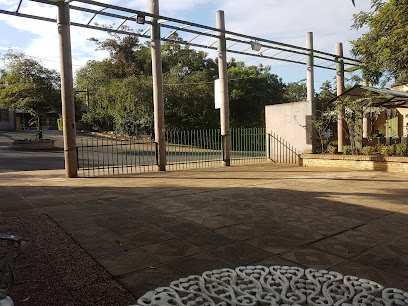
National Pantheon of Heroes
Discover the National Pantheon of Heroes in Asunción, a majestic tribute to Paraguay's national heroes and rich cultural heritage.

Independence House Museum
Discover Paraguay's history at the Independence House Museum, a historical landmark showcasing the nation's path to independence and rich cultural heritage.
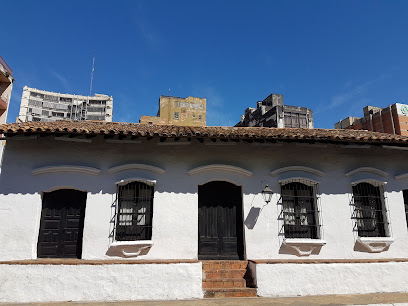
Catedral Metropolitana de Nuestra Señora de la Asunción
Explore the architectural beauty and historical significance of Catedral Metropolitana de Nuestra Señora de la Asunción, a must-visit landmark in Paraguay's capital.
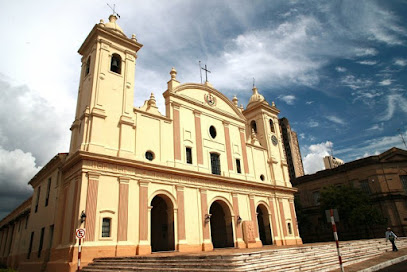
Museo del Barro
Discover the rich tapestry of Paraguayan culture and artistry at Museo del Barro, a premier art museum in Asunción that captivates all who visit.
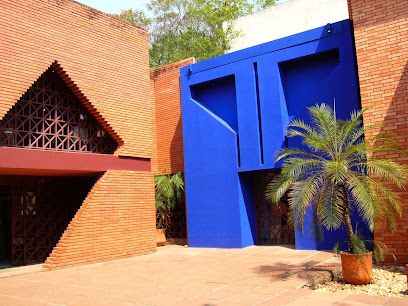
Palacio de López
Explore the Palacio de López, a stunning neoclassical government building in Asunción, rich with history and architectural beauty.

Asunción Paraguay Temple
Explore the Asunción Paraguay Temple, where spirituality meets stunning architecture in the heart of Paraguay's capital, offering a peaceful retreat for all visitors.
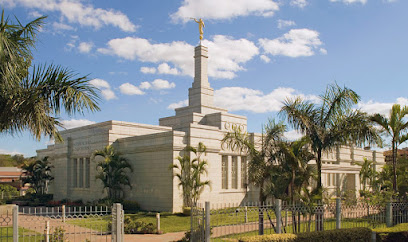
Cerro Lambaré
Explore the breathtaking views and natural beauty of Cerro Lambaré, a premier hiking destination just outside Asunción, Paraguay.
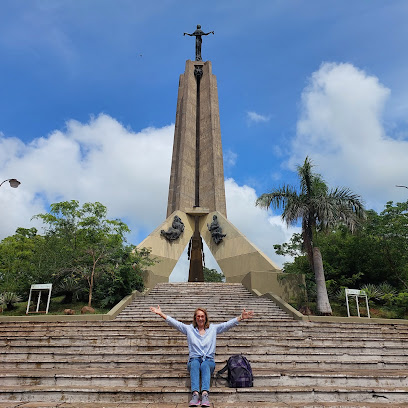
Unmissable attractions to see
Costanera de Asunción
Experience the beauty and vibrant culture of Asunción at Costanera de Asunción, a stunning riverside park perfect for relaxation and recreation.
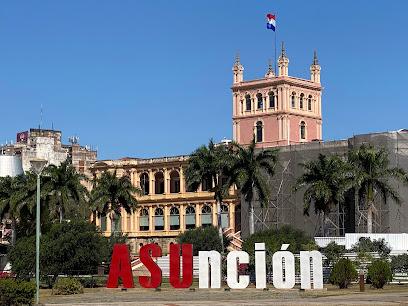
Botanical Garden of Asunción
Explore the Botanical Garden of Asunción, a lush paradise in Paraguay's capital, teeming with stunning flora and rich biodiversity for nature enthusiasts.
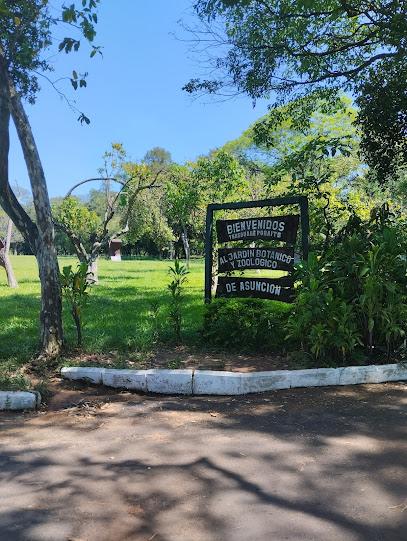
Plaza Uruguaya
Discover the beauty of Plaza Uruguaya, a serene park in Asunción, rich in history and perfect for relaxation amidst vibrant local life.
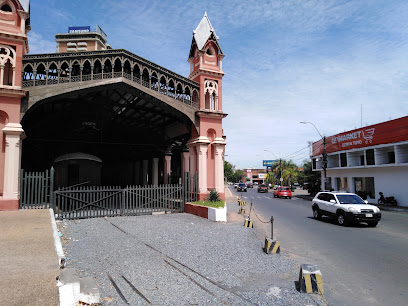
Centro Cultural Manzana de la Rivera
Explore the rich cultural heritage and artistic expressions at Centro Cultural Manzana de la Rivera in Asunción, Paraguay.
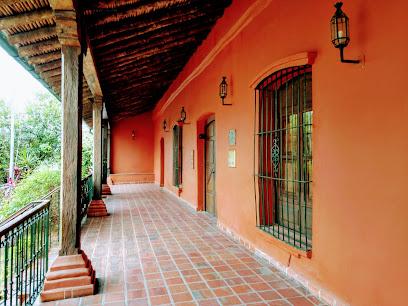
Carlos Antonio Lopez Park
Discover tranquility and natural beauty at Carlos Antonio Lopez Park, a serene oasis in the heart of Asunción perfect for relaxation and recreation.
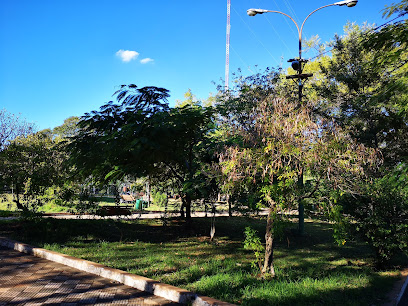
Centro Cultural Manzana de la Rivera
Explore the vibrant Centro Cultural Manzana de la Rivera, a cultural gem in Asunción showcasing Paraguay's rich history and contemporary art.
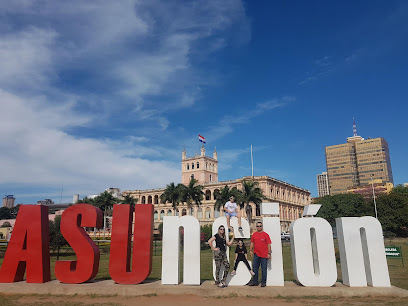
National Pantheon of Heroes
Explore the National Pantheon of Heroes in Asunción—an iconic tribute to Paraguay's history, culture, and national pride.
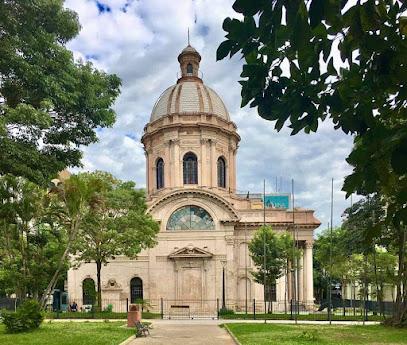
Independence House Museum
Immerse yourself in Paraguay's independence story at the Independence House Museum, a blend of history, culture, and memorable experiences.
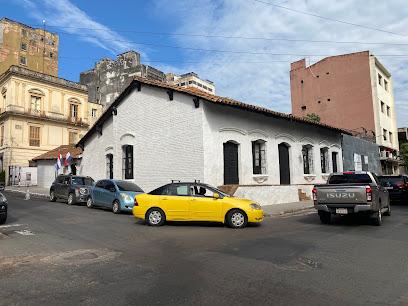
Catedral Metropolitana de Nuestra Señora de la Asunción
Explore the stunning Catedral Metropolitana de Nuestra Señora de la Asunción, an architectural gem and spiritual heart of Asunción, Paraguay.
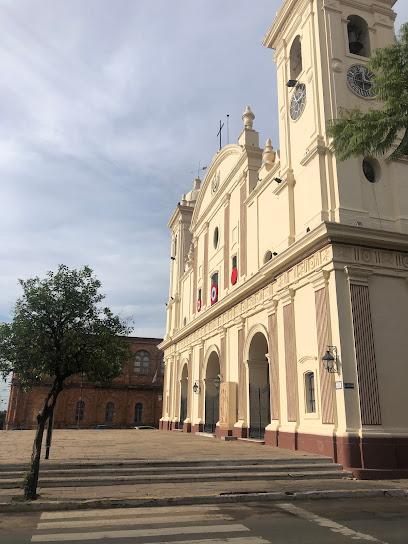
Loma San Jerónimo
Discover the vibrant charm of Loma San Jerónimo, Asunción's artistic neighborhood with colorful houses, stunning views, and a rich cultural heritage.
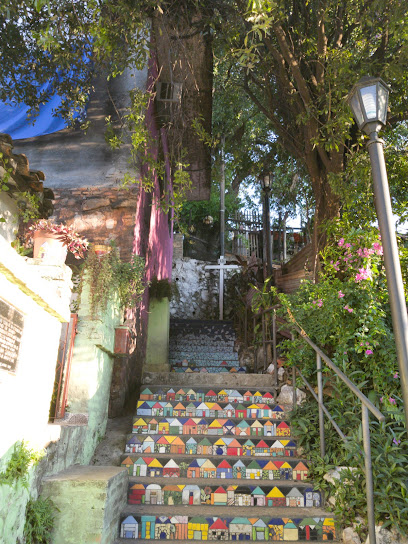
Museo del Barro
Explore the rich artistic heritage of Paraguay at Museo del Barro in Asunción, where tradition meets contemporary creativity.
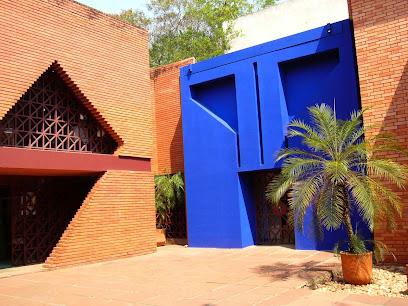
Cultural Center of the Republic
Discover the vibrant culture and rich history of Paraguay at the Cultural Center of the Republic, a must-visit destination in Asunción.
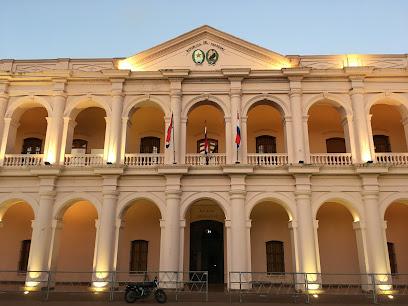
Museo del Barro
Explore the rich heritage of Paraguay at Museo del Barro, an art museum showcasing traditional and contemporary works that reflect the nation's vibrant culture.
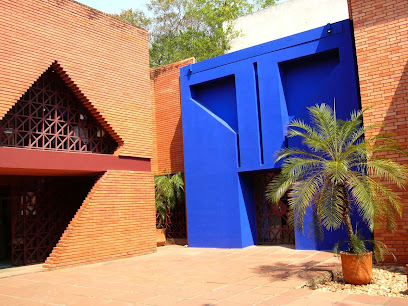
Palacio de López
Discover the architectural beauty and historical significance of Palacio de López, the presidential palace of Paraguay in Asunción.
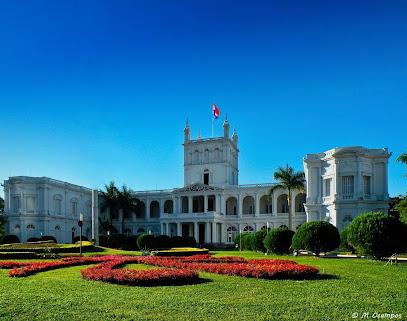
Museo Nacional de Bellas Artes de Asunción
Explore the rich artistic heritage of Paraguay at the Museo Nacional de Bellas Artes, where culture and creativity come to life.
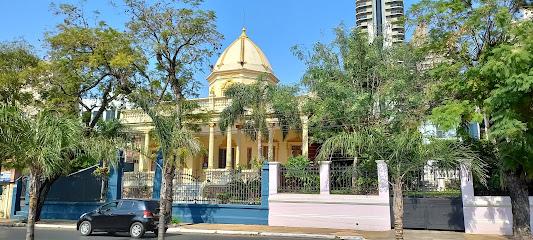
Essential places to dine
Bolsi
Experience authentic Paraguayan cuisine at Bolsi, a family-friendly restaurant in Asunción offering breakfast, sushi, and delightful meals in a welcoming atmosphere.
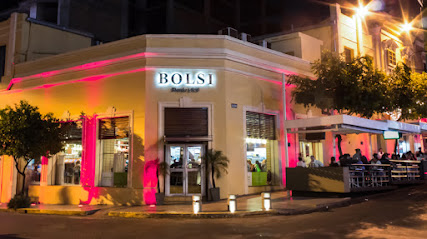
Lido Bar
Experience authentic Paraguayan cuisine at Lido Bar in Asunción - where tradition meets taste in every dish.
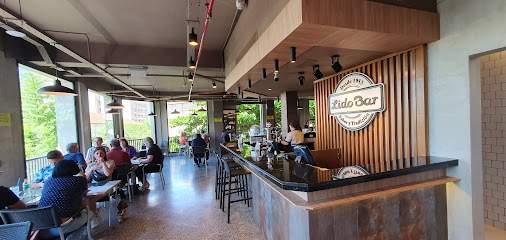
El Café de Acá
Discover El Café de Acá in Asunción: where delightful breakfasts meet cozy ambiance for an unforgettable dining experience.
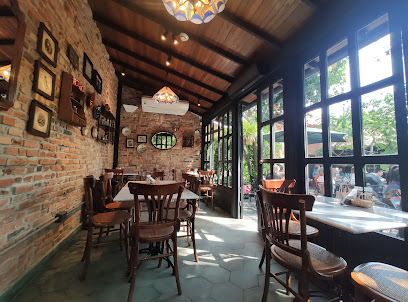
La Cabrera
Experience exquisite Paraguayan cuisine at La Cabrera, Asunción's premier steakhouse known for its exceptional cuts and vibrant atmosphere.
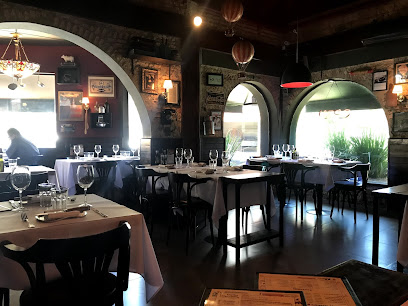
3 Calacas
Savor authentic Mexican cuisine and vibrant drinks at 3 Calacas in Asunción - an unforgettable dining experience awaits!
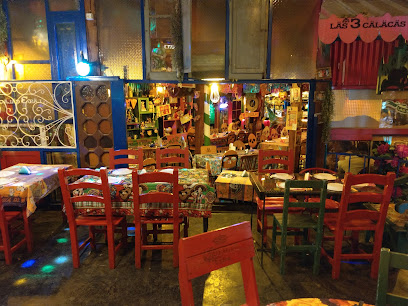
Maurice de Talleyrand
Discover exquisite dining at Maurice de Talleyrand in Asunción - where local flavors meet global culinary artistry.
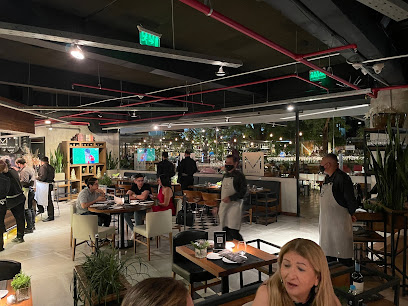
Javorai
Discover Javorai in Asunción: Authentic Italian pizza served in a cozy atmosphere perfect for any occasion.
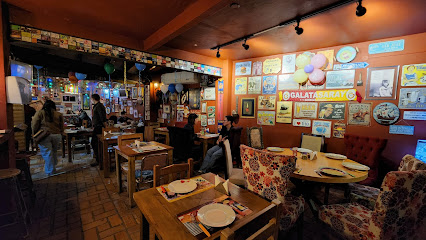
ALMA - Cocina con Fuegos
Experience exquisite fire-cooked cuisine at ALMA - Cocina con Fuegos in Asunción; where tradition meets modern culinary art.
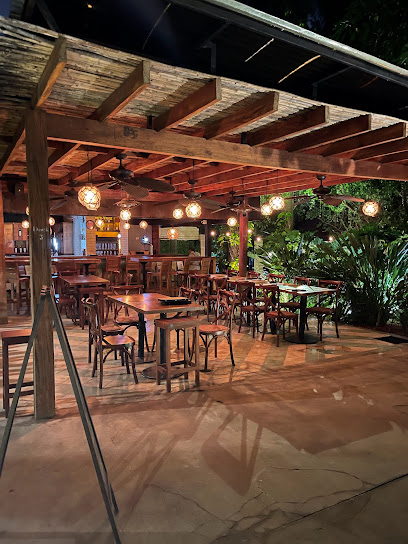
Bar San Roque
Discover authentic Paraguayan flavors at Bar San Roque in Asunción - where every meal is a celebration of local cuisine.
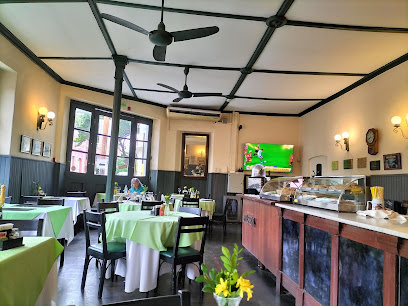
Shangri-La
Discover authentic Chinese flavors at Shangri-La in Asunción – where every dish tells a story of culinary tradition.
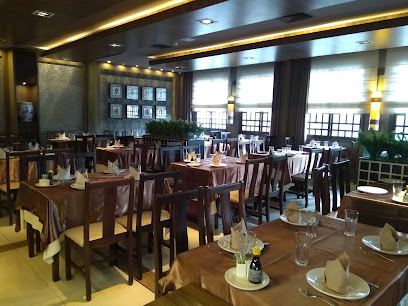
Taberna Española
Savor the authentic taste of Spain at Taberna Española in Asunción – a culinary journey filled with flavor and tradition.
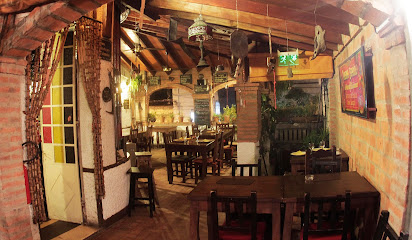
Bar San Miguel
Discover Bar San Miguel: where authentic Paraguayan flavors meet modern culinary artistry in Asunción.
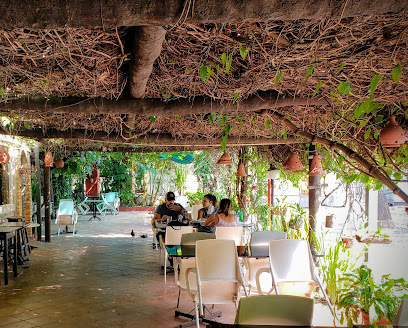
Lo de Osvaldo, Paseo la Galeria
Experience authentic Paraguayan grilled cuisine at Lo de Osvaldo in Asunción - where flavor meets tradition in a vibrant setting.
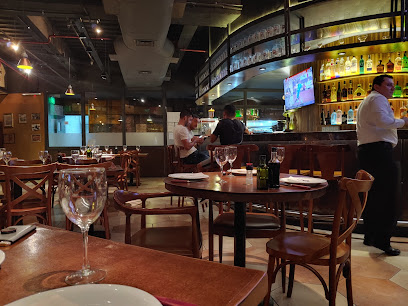
Bar La Esquina
Discover authentic Paraguayan snacks at Bar La Esquina in Asunción – where flavor meets affordability in a cozy atmosphere.
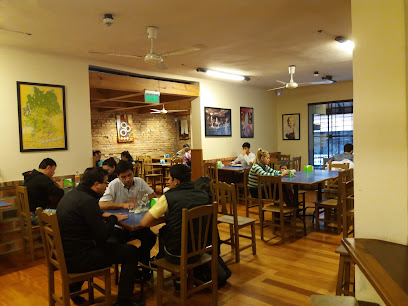
La Paraguayita
Experience the essence of Paraguayan cuisine at La Paraguayita in Asunción - where tradition meets flavor.
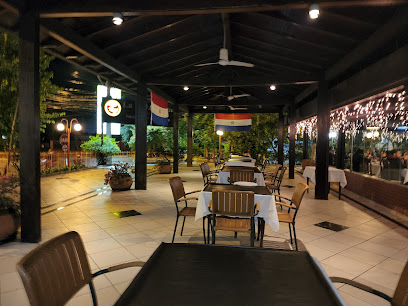
Markets, malls and hidden boutiques
Paseo La Galería
Explore the vibrant Paseo La Galería in Asunción, a shopping haven with diverse stores, delightful dining, and exciting entertainment options for every traveler.
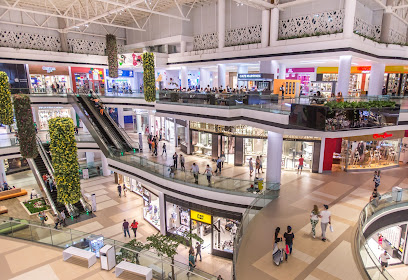
Shopping del Sol
Discover the ultimate shopping experience at Shopping del Sol in Asunción, featuring a wide range of stores, dining options, and entertainment for everyone.
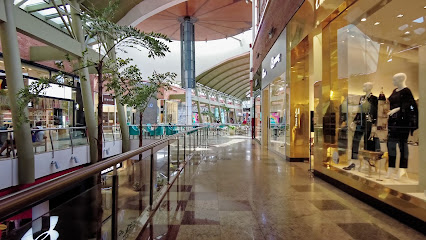
Shopping Mariscal
Experience shopping like never before at Shopping Mariscal in Asunción, where retail therapy meets delightful dining and entertainment.
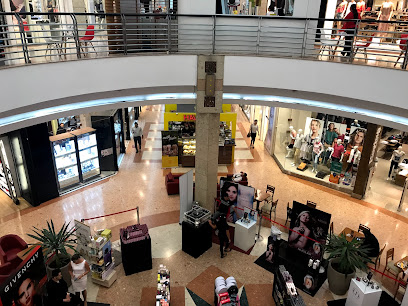
Shopping Multiplaza
Discover Shopping Multiplaza in Asunción: A vibrant shopping mall offering a diverse selection of stores, eateries, and entertainment for every taste.
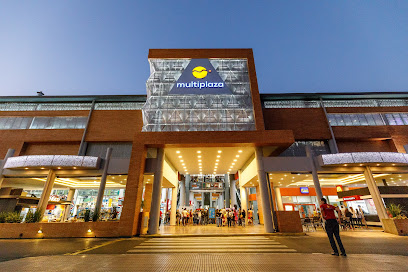
Shopping Villa Morra
Discover Shopping Villa Morra in Asunción, Paraguay - a vibrant shopping paradise with local boutiques, dining, and entertainment for every traveler.
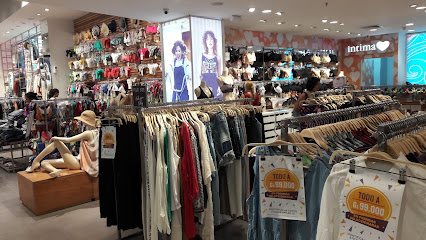
Feria Asunción
Explore the vibrant Feria Asunción, where local culture meets an eclectic marketplace of clothing, home goods, and party supplies in the heart of Paraguay.
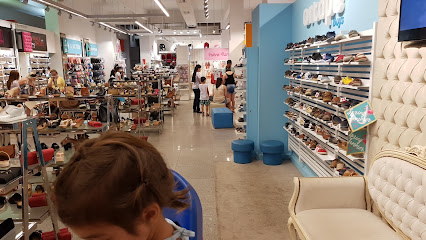
Feria Asunción - Sucursal Azara
Explore fashion and fun at Feria Asunción - Sucursal Azara, a vibrant clothing and toy store in the heart of Asunción, Paraguay.
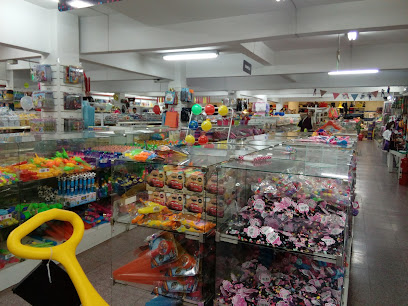
Shopping Tiara
Explore Asunción's premier clothing store, Shopping Tiara, offering a diverse range of stylish apparel and accessories to suit every taste.
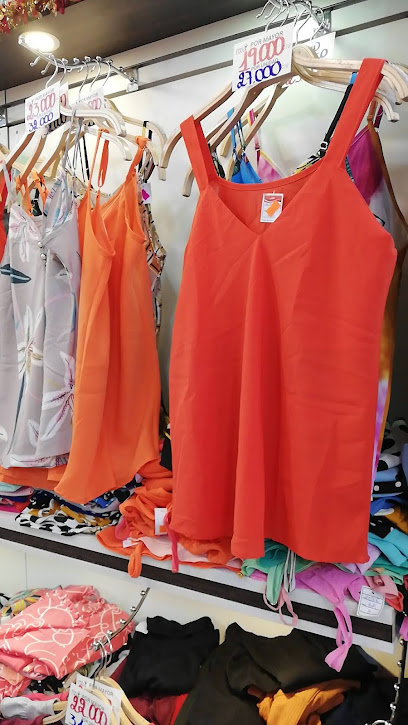
AO Paraguay
Explore the cultural essence of Paraguay through unique gifts and artisan crafts at AO Paraguay, a premier gift shop in Asunción.
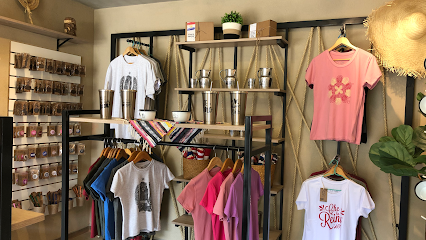
Trade Store Paraguay
Explore the vibrant world of trading cards at Trade Store Paraguay, a must-visit destination for collectors and gaming enthusiasts in Asunción.
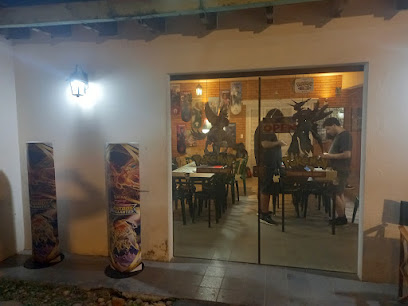
Visual Wish
Discover the latest fashion trends at Visual Wish in Asunción’s Shopping Villa Morra, offering a blend of local and international styles.
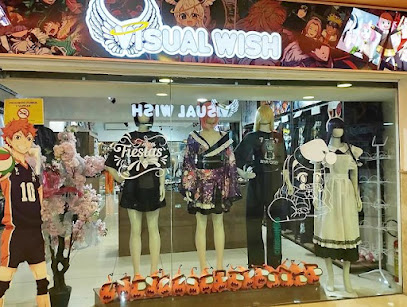
Paseo Premium
Discover a shopping paradise at Paseo Premium, Asunción's vibrant hub for retail therapy, dining delights, and family-friendly entertainment.
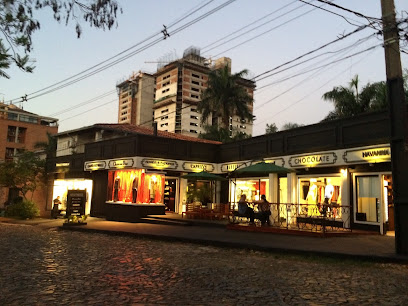
Bazar Familiar
Discover the vibrant world of fashion at Bazar Familiar in Asunción, where local styles meet personalized service in a unique shopping experience.
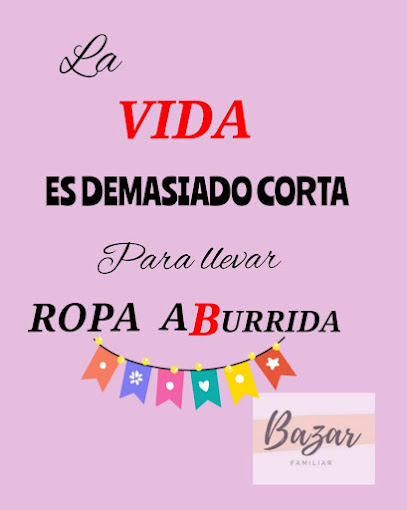
Kshop.py
Explore the vibrant shopping scene at Kshop.py in Asunción, where local craftsmanship meets a diverse array of international brands.
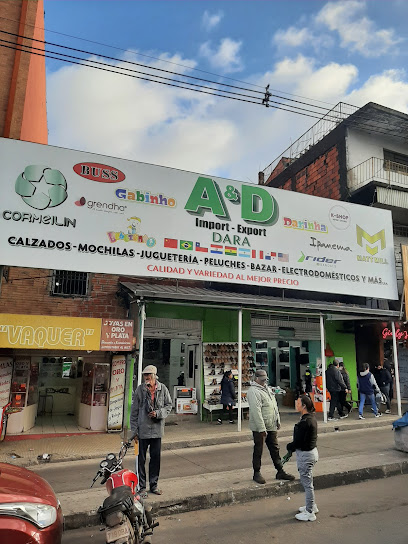
Compras Paraguay
Explore Compras Paraguay in Asunción for an exceptional shopping experience with local crafts and modern products in a vibrant atmosphere.
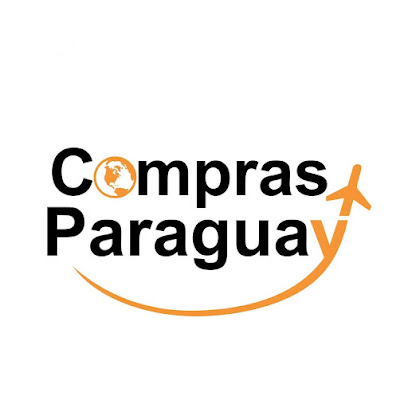
Essential bars & hidden hideouts
Britannia Pub
Discover the lively Britannia Pub in Asunción, where delicious food and refreshing drinks meet a vibrant atmosphere perfect for any night out.
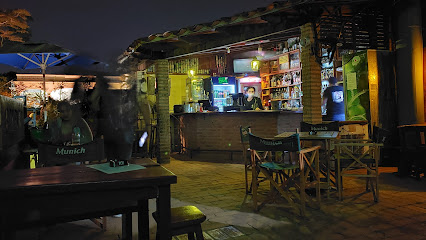
Palo Santo Brewing Company
Explore the unique flavors of Paraguay at Palo Santo Brewing Company, where handcrafted beers meet vibrant local culture in Asunción.
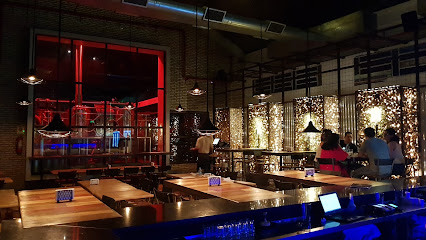
Capitão Bar - Asunción
Discover the lively atmosphere and vibrant nightlife of Capitão Bar, a top destination for drinks and delicious snacks in Asunción.
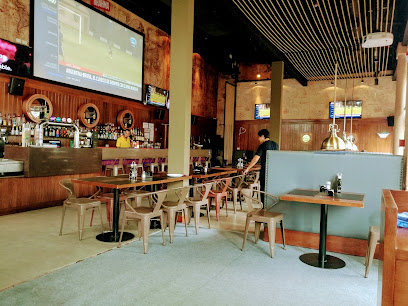
Ko'ape Rooftop
Experience breathtaking views and vibrant nightlife at Ko'ape Rooftop, Asunción's premier bar for tourists seeking unforgettable moments.
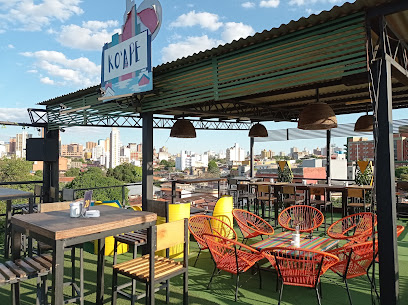
Die Mannschaft Bar
Immerse yourself in the lively nightlife of Asunción at Die Mannschaft Bar, where great drinks and vibrant entertainment await.
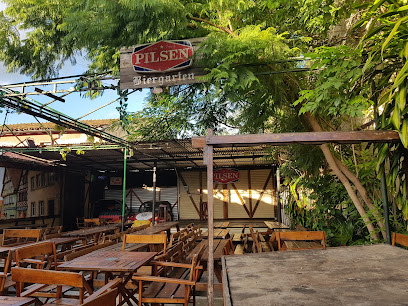
O'Leary club
Experience the vibrant nightlife of Asunción at O'Leary Club, a lively bar with great drinks, music, and a welcoming atmosphere.
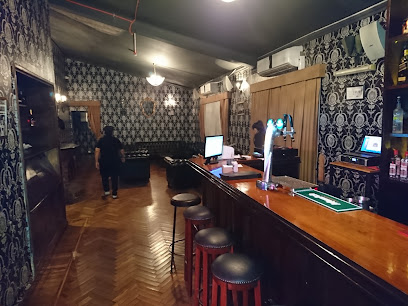
Territorio Chopp Las Mercedes
Experience the lively atmosphere of Territorio Chopp Las Mercedes, Asunción's premier bar for craft beers and local delights.
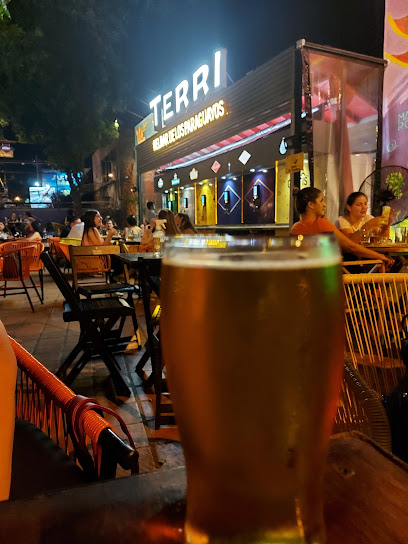
Florencia Bar
Discover the lively Florencia Bar in Asunción, where exquisite cocktails and delicious bites meet the heart of Paraguay's vibrant nightlife.
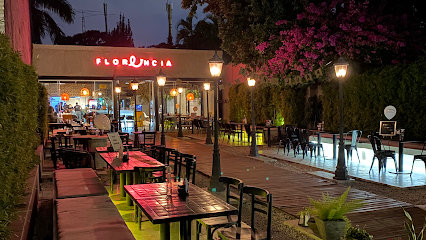
Londoner
Discover the vibrant nightlife at Londoner, Asunción's premier bar offering an extensive drink selection and lively ambiance.
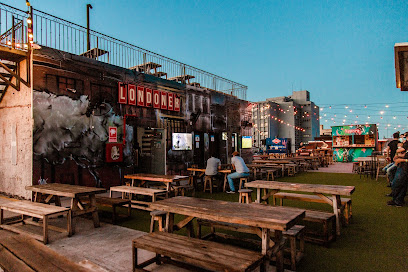
McCarthy's Irish Pub
Discover McCarthy's Irish Pub in Asunción, a lively live music bar offering delicious Irish cuisine and vibrant local culture.
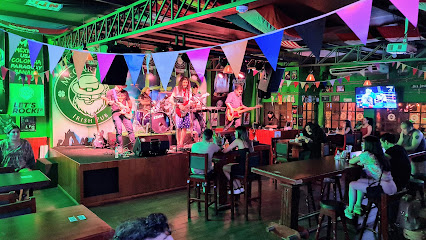
Absoluto Rock Bar
Discover the vibrant atmosphere of Absoluto Rock Bar in Asunción, where live music and great drinks create unforgettable nights.
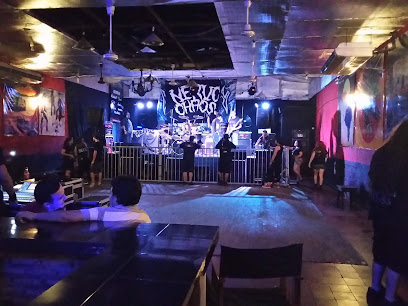
Morgan Warehouse, Nightclub
Morgan Warehouse Nightclub: A vibrant nightlife venue in Asunción, offering lively music, crafted cocktails, and a trendy atmosphere.
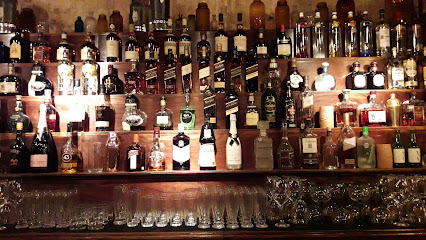
Jardin Urbano
Experience the enchanting ambiance and diverse drink selection at Jardin Urbano, a must-visit bar in the heart of Asunción, Paraguay.
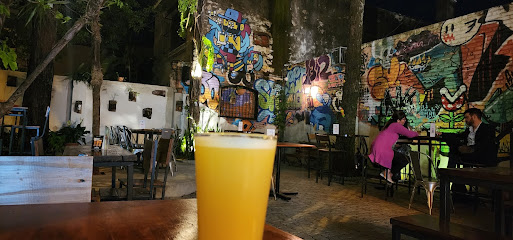
Kegger | Beer House
Explore a vibrant beer house in Asunción offering a wide selection of local and international craft beers in a lively atmosphere.
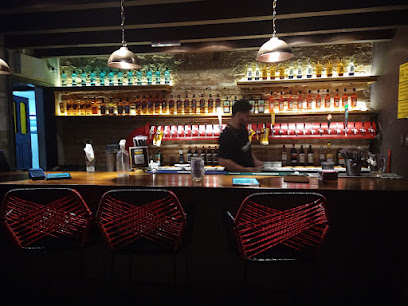
Local Phrases
-
- HelloHola
[oh-lah] - GoodbyeAdiós
[ah-dee-ohs] - YesSí
[see] - NoNo
[noh] - Please/You're welcomePor favor/De nada
[por fah-vor/deh nah-dah] - Thank youGracias
[grah-see-ahs] - Excuse me/SorryPerdón
[pehr-dohn] - How are you?¿Cómo estás?
[koh-moh ehs-tahs] - Fine. And you?Bien. ¿Y tú?
[bee-ehn. ee too] - Do you speak English?¿Hablas inglés?
[ah-blahs een-glehs] - I don't understandNo entiendo
[noh ehn-tee-ehn-doh]
- HelloHola
-
- I'd like to see the menu, pleaseQuisiera ver el menú, por favor
[kee-see-eh-rah behr ehl meh-noo, poor fah-vor] - I don't eat meatNo como carne
[noh koh-moh kahr-neh] - Cheers!¡Salud!
[sah-lood] - I would like to pay, pleaseMe gustaría pagar, por favor
[meh goos-tah-ree-ah pah-gahr, poor fah-vor]
- I'd like to see the menu, pleaseQuisiera ver el menú, por favor
-
- Help!¡Ayuda!
[ah-yoo-dah] - Go away!¡Vete!
[veh-teh] - Call the Police!Llama a la Policía!
[yah-mah ah lah poh-lee-see-ah] - Call a doctor!Llama a un médico!
[yah-mah ah oon meh-dee-koh] - I'm lostEstoy perdido
[ehs-toy pehr-dee-doh] - I'm illEstoy enfermo
[ehs-toy ehn-fehr-moh]
- Help!¡Ayuda!
-
- I'd like to buy...Quisiera comprar...
[kee-see-eh-rah kohm-prahr] - I'm just lookingSolo estoy mirando
[soh-loh ehs-toy meer-ahn-doh] - How much is it?¿Cuánto cuesta?
[kwan-toh kwehs-tah] - That's too expensiveEs muy caro
[ehs mwee kah-roh] - Can you lower the price?¿Puedes bajar el precio?
[pweh-dehs bah-hahr ehl pree-syoh]
- I'd like to buy...Quisiera comprar...
-
- What time is it?¿Qué hora es?
[keh oh-rah ehs] - It's one o'clockEs la una
[ehs lah oo-nah] - Half past (10)Y media
[ee meh-dee-ah] - MorningMañana
[mah-nyah-nah] - AfternoonTarde
[tahr-deh] - EveningNoche
[noh-cheh] - YesterdayAyer
[ah-yehr] - TodayHoy
[oy] - TomorrowMañana
[mah-nyah-nah] - 1Uno
[oo-noh] - 2Dos
[dohs] - 3Tres
[trehs] - 4Cuatro
[kwah-troh] - 5Cinco
[seen-koh] - 6Seis
[says] - 7Siete
[syeh-teh] - 8Ocho
[oh-choh] - 9Nueve
[nweh-veh] - 10Diez
[dyehs]
- What time is it?¿Qué hora es?
-
- Where's a/the...?¿Dónde está...?
[dohn-deh ehs-tah] - What's the address?¿Cuál es la dirección?
[kwal ehs lah dee-rehk-syohn] - Can you show me (on the map)?¿Puedes mostrarme (en el mapa)?
[pweh-dehs mohs-trar-meh (ehn ehl mah-pah)] - When's the next (bus)?¿Cuándo es el próximo (autobús)?
[kwan-doh ehs ehl prohk-see-moh (ow-toh-boos)] - A ticket (to ....)Un boleto (a ...)
[oon boh-leh-toh (ah ...)]
- Where's a/the...?¿Dónde está...?
History of Asuncion
-
Asunción, the capital city of Paraguay, was founded on August 15, 1537, by Spanish explorer Juan de Salazar y Espinosa. The city was originally established as 'Nuestra Señora Santa María de la Asunción' and became one of the first significant settlements along the Río de la Plata basin, playing a crucial role in the Spanish colonization of South America.
-
Asunción served as a central hub for the Jesuit missions in the 17th and 18th centuries. The Jesuits established numerous reductions, or mission settlements, in the surrounding areas, aiming to convert the indigenous Guaraní population to Christianity while giving them education and protection. The Jesuit influence significantly shaped the cultural and social development of the region.
-
Paraguay declared its independence from Spanish rule on May 14, 1811. Asunción was the epicenter of the revolutionary activities, with key figures like Dr. José Gaspar Rodríguez de Francia playing a pivotal role in the movement. This marked the beginning of Paraguay as a sovereign nation, with Asunción becoming its capital.
-
Dr. José Gaspar Rodríguez de Francia, also known as El Supremo, ruled Paraguay from 1814 to 1840. During his rule, he isolated Paraguay from foreign influence and focused on self-sufficiency. Asunción, under his strict governance, saw a period of relative stability and economic independence, albeit with limited external interaction.
-
The Paraguayan War, also known as the War of the Triple Alliance (1864-1870), was a devastating conflict involving Paraguay against Brazil, Argentina, and Uruguay. Asunción was occupied by Allied forces in 1869, leading to significant destruction and loss of life. The aftermath of the war had a profound impact on the city and the entire country, with a long period of recovery and rebuilding.
-
In the late 19th and early 20th centuries, Asunción underwent significant modernization and growth. The city saw the development of infrastructure, including railways, roads, and public buildings. European immigrants, particularly from Italy and Germany, contributed to the cultural and economic dynamism of Asunción, enriching its architectural landscape and social fabric.
-
Asunción is rich in cultural heritage, with numerous museums, theaters, and historical sites. The Panteón Nacional de los Héroes, the Casa de la Independencia Museum, and the National Museum of Fine Arts are just a few examples of the city's dedication to preserving its history and cultural identity. Festivals and events, such as the annual Carnaval and the Feast of San Juan, highlight the vibrant traditions and community spirit of Asunción.
Asuncion Essentials
-
Asuncion, the capital city of Paraguay, is accessible primarily through Silvio Pettirossi International Airport (ASU), which is approximately 15 kilometers from the city center. The airport receives flights from various international destinations, including major cities in South America and some connections from Europe and the United States. From the airport, you can take a taxi, ride-sharing service, or arrange for a shuttle to reach your accommodation in the city. Overland travel is also an option, with bus services connecting Asuncion to neighboring countries like Argentina, Brazil, and Bolivia.
-
Asuncion offers several transportation options for getting around the city. Public buses are the most common mode of transport and are quite affordable. However, they can be crowded and may not always run on a strict schedule. Taxis and ride-sharing services like Uber are widely available and offer a more comfortable way to travel. Renting a car is another option, providing flexibility for exploring the city and surrounding areas. Be mindful of the traffic, which can be hectic, especially during peak hours.
-
The official currency of Paraguay is the Paraguayan Guarani (PYG). Credit and debit cards are widely accepted in hotels, restaurants, and larger stores. However, it's advisable to carry some cash, especially for small purchases, street vendors, and in more rural areas. ATMs are readily available throughout Asuncion, but be cautious of fees and ensure your bank is notified of international travel to avoid card issues.
-
While Asuncion is generally safe for tourists, certain areas have higher crime rates, particularly for petty crimes like pickpocketing and bag snatching. Neighborhoods such as Chacarita and some parts of the downtown area should be navigated with caution, especially after dark. Always be aware of your surroundings, avoid displaying valuables, and use reputable transportation options. Stick to well-lit and busy areas, and consider using hotel safes for your important documents and valuables.
-
In case of an emergency, dial 911 for immediate assistance. Asuncion has several hospitals and clinics that provide medical care; some recommended hospitals include Hospital de Clinicas and San Roque Hospital. It's advisable to have travel insurance that covers medical emergencies. For minor health issues, pharmacies are available throughout the city. The main police station is located in the downtown area, and they can assist with any safety concerns or incidents.
-
Fashion: Do dress modestly, especially when visiting religious sites. Avoid overly casual or revealing clothing. Religion: Do respect local customs and traditions. When visiting churches, dress conservatively and remain quiet. Public Transport: Do pay attention to your belongings on public buses. Don't eat or drink on public transport. Greetings: Do greet people with a handshake, and it's polite to use formal titles. Eating & Drinking: Do try local dishes and drinks, such as Sopa Paraguaya and Tereré. Don't refuse food or drink offerings, as it can be seen as impolite.
-
To experience Asuncion like a local, visit the Mercado 4, a bustling market where you can find everything from fresh produce to local handicrafts. Take a stroll through the historic center and explore landmarks like the Palacio de los López and the National Pantheon of the Heroes. Engage with locals, who are generally friendly and open to sharing their culture. Try the local street food, and don't miss out on the vibrant nightlife in the neighborhoods of Villa Morra and Carmelitas.
Trending Landmark in Asuncion
-
Costanera de Asunción
-
Paseo Carmelitas
-
Plaza Uruguaya
-
Botanical Garden and Zoo of Asunción
-
Plaza de la Democracia
-
Carlos Antonio Lopez Park
-
Centro Cultural Manzana de la Rivera
-
Health Park (IPS)
-
National Pantheon of Heroes
-
Independence House Museum
-
Catedral Metropolitana de Nuestra Señora de la Asunción
-
Museo del Barro
-
Palacio de López
-
Asunción Paraguay Temple
-
Cerro Lambaré
Nearby Cities to Asuncion
-
Things To Do in Aregua
-
Things To Do in San Bernardino
-
Things To Do in Ypacarai
-
Things To Do in Villarrica
-
Things To Do in Carmen del Parana
-
Things To Do in Encarnacion
-
Things To Do in Hernandarias
-
Things To Do in Foz do Iguaçu
-
Things To Do in Puerto Iguazú
-
Things To Do in Tacuarembó
-
Things To Do in San Miguel de Tucumán
-
Things To Do in Salta
-
Things To Do in Tarija
-
Things To Do in Fray Bentos
-
Things To Do in Rosario

















